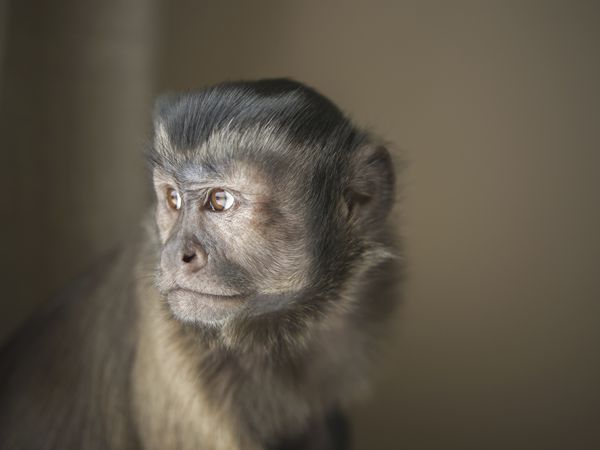Taking on a pet monkey is not like caring for most other pets. A well-cared-for monkey can generally live to be anywhere from 20 to 40 years old, and it will need your full commitment throughout its entire life. Monkeys do not grow up and mature like human children do. They are, in essence, permanent toddlers.
Pet monkeys also might not take well to new people in your life, including spouses and children, and they make it hard to get away for vacations. Plus, finding a new home for a pet monkey is extremely difficult and psychologically hard on the monkey.
Furthermore, a monkey needs a large amount of social interaction. A pet monkey deprived of your time and attention will likely develop not only severe behavioral problems, such as screaming and biting, but also psychological issues that can be difficult to remedy.
Legal Issues
Primates, such as monkeys, might be illegal to keep as pets where you live. And if a monkey is legal to own, permits still might be required. Sometimes permit holders are subject to home inspections to ensure proper facilities and care are being provided.
Moreover, homeowner policies might require additional liability coverage, or some insurance companies might cancel your policy altogether if they find out you have a monkey. However, not having insurance puts you at risk if your monkey bites someone.
Medical Issues
A wide range of diseases can be passed between monkeys and humans. (These are called zoonotic diseases and can be quite serious.) But finding a veterinarian near you who is able and willing to treat a primate can be challenging.
In addition, it can be difficult to keep a captive monkey healthy. For instance, monkeys often require specialized diets that can be expensive and time-consuming to prepare. Diabetes is common in pet monkeys due to the poor diets many owners feed them. This is just one disease that requires constant monitoring by you and your vet.
Behavioral Problems
A sweet, dependent baby monkey will eventually grow up to become the wild animal it was meant to be. Raising a monkey around humans won’t change its wild nature, and pet monkeys will never truly become domesticated. In fact, depriving a pet monkey of normal social relationships with other monkeys can create behavioral problems and neuroses.
Pet monkeys often have a tendency to bite (and they have 32 teeth to deliver these nasty bites). While some monkeys are gentle, some are very aggressive. However, even the gentlest monkeys are unpredictable and might turn aggressive on anyone, including the person to whom they are the closest, especially during and after puberty.
Housing Pet Monkeys
Monkeys need a large, secure enclosure, which can be expensive to construct. They should spend time outdoors if possible. And they must be provided with a wide variety of ever-changing toys and exercise equipment to keep them challenged, or they will suffer from boredom. Some states require certain types of enclosures to fulfill permit regulations, but you should always have a place to secure your monkey to keep it and the public safe.
Moreover, monkeys are not clean and tidy. Most can’t be effectively toilet trained. Many young monkeys can be diapered or at least partly toilet trained, but that ability is often lost at maturity. Plus, they might engage in distasteful activities involving their feces and urine (such as throwing it and painting with it). Aside from the toileting messes, pet monkeys also can be extremely mischievous and destructive, especially when they’re bored.
The Bottom Line
Overall, monkeys are not good pets. Yes, some can be quite sweet for a time. But the reality is monkeys are capable of causing too much harm and need too much care and attention to thrive in a human household. These issues are equally as important when it comes to apes (chimpanzees, orangutans, and gibbons). In short, non-human primates and human beings make poor housemates.RELATED TOPICS
